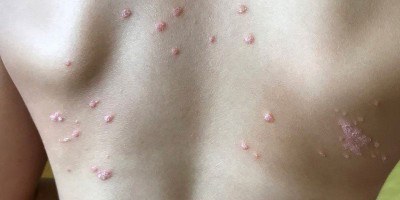

Psoriasis of the scalp is a disorder characterized by thick, flaky patches of skin caused by an increase in the rate at which skin cells multiply. An accumulation of dry skin on the scalp is the root cause of dandruff, a common skin problem. Overactive immunity results in Psoriasis, a chronic skin condition that may endure for years. Due to this, your skin cells will multiply at an abnormal rate. Psoriasis affects around 7.5 million people in the United States who are 20 or older. Psoriasis affects the scalp in around half of those who have it. Psoriasis on the scalp may be challenging to treat because hair prevents the skin from flaking off. As the scales multiply, the damaged skin becomes more robust. The scalp psoriasis symptoms may improve at times, but they might flare up again if exposed to specific triggers.
What Exactly Is Scalp Psoriasis?
Psoriasis is a recurring skin as well as an inflammatory disorder, and Psoriasis of the scalp is a subtype. Psoriasis, especially Psoriasis of the scalp, develops when abnormal immune activity promotes the rapid proliferation of skin cells. Plaques are raised, thick areas of skin caused by this fast growth. "If you have psoriasis on other regions of the body as well as you observe thickened, flaking skin upon that scalp, therefore are likely dealing having scalp psoriasis rather than any other skin disorders that generate flaky skin on the scalp," explains Dr. Monjazeb, contrasting scalp psoriasis with other kinds of Psoriasis. The intensity of scalp psoriasis is variable, much like that in other body regions. It is considerably more likely to react to therapy if scalp psoriasis symptoms are attended to as soon as they are seen.
What Factors Contribute To Scalp Psoriasis?

Dr. Monjazeb says Psoriasis is an inflammatory illness caused by an overactive immune system and manifested by a distinctive rash. It is known that a faulty immune system is to blame for scalp psoriasis, but the exact cause of this ailment is unknown. Psoriasis does have a genetic component, and those with fair skin are disproportionately affected.
Fair skin and a history of Psoriasis on the scalp are only two risk factors.
- Using tobacco products and drinking excessively
- A lot of pressure
- Problems with the immune function that stem from other diseases
- Incorporating drugs such as indomethacin, quinidine, beta-blockers, lithium, antimalarials, and iodides into one's daily routine
- Having a BMI of 40 or above, which is considered obesity
- Infection with a virus or bacterium
- Insufficient Vitamin D
- Punctures and scrapes
What Exactly Is Dandruff?

To put it simply, dandruff is an irritating skin condition. The signs of dandruff, including the white, scaly flakes of skin that may wind up strewn over your neck and shoulders, have been examined extensively and are well-known. To be sure, dandruff is a mystery to most. For further information, VEGAMOUR contacted Dr. Naheed A. Ali, MD, author at USA Rx.
Though the symptoms are typically the same, dandruff appears in several forms:
- Dry skin cells, or dandruff, are the leading cause of scalp discomfort, impacting as many as 50 million individuals in the United States alone. White or yellowish flakes of dead skin, somewhat on the scalp, may come off and land on the shoulders, indicating this condition. Scaly skin, itching, irritation, redness, and inflammation are potential side effects of dandruff.
- Compared to dandruff, seborrheic dermatitis symptoms are more obvious and troublesome. Indicators include flaking of the scalp's skin and itchiness, irritation, and oiliness of the skin. Seborrheic dermatitis may manifest everywhere on the body but is more common in oily skin regions like the scalp, face, chest, and back.
- Itching and redness are symptoms of contact dermatitis, also known as contact eczema. Harsh shampoos, allergies, and other irritant and reddening items are common causes of scalp contact dermatitis. The issue often improves by eliminating the material, such as by switching to mild products like gentle conditioning shampoo and conditioner to prevent irritation.
Conclusion
Since both scalp psoriasis and dandruff cause itchy, flaky skin on the scalp, diagnosing one from the other may be challenging. Understanding the distinction between the two illnesses can help you find the most appropriate care. Psoriasis may be what's triggering your dandruff. Psoriasis is believed to be an autoimmune disease that runs in families. Psoriasis affects both sexes and may manifest at any age. In addition to the scalp, Psoriasis may cause itchy, scaly spots in the creases of the elbows, knees, lower back, groin, and elsewhere on the body. When you have Psoriasis on your scalp, a scratch, a cut, the sun, or dry air might bring a flare-up. However, dandruff is often brought on by yeast or fungus that lives off your body's natural oils.

